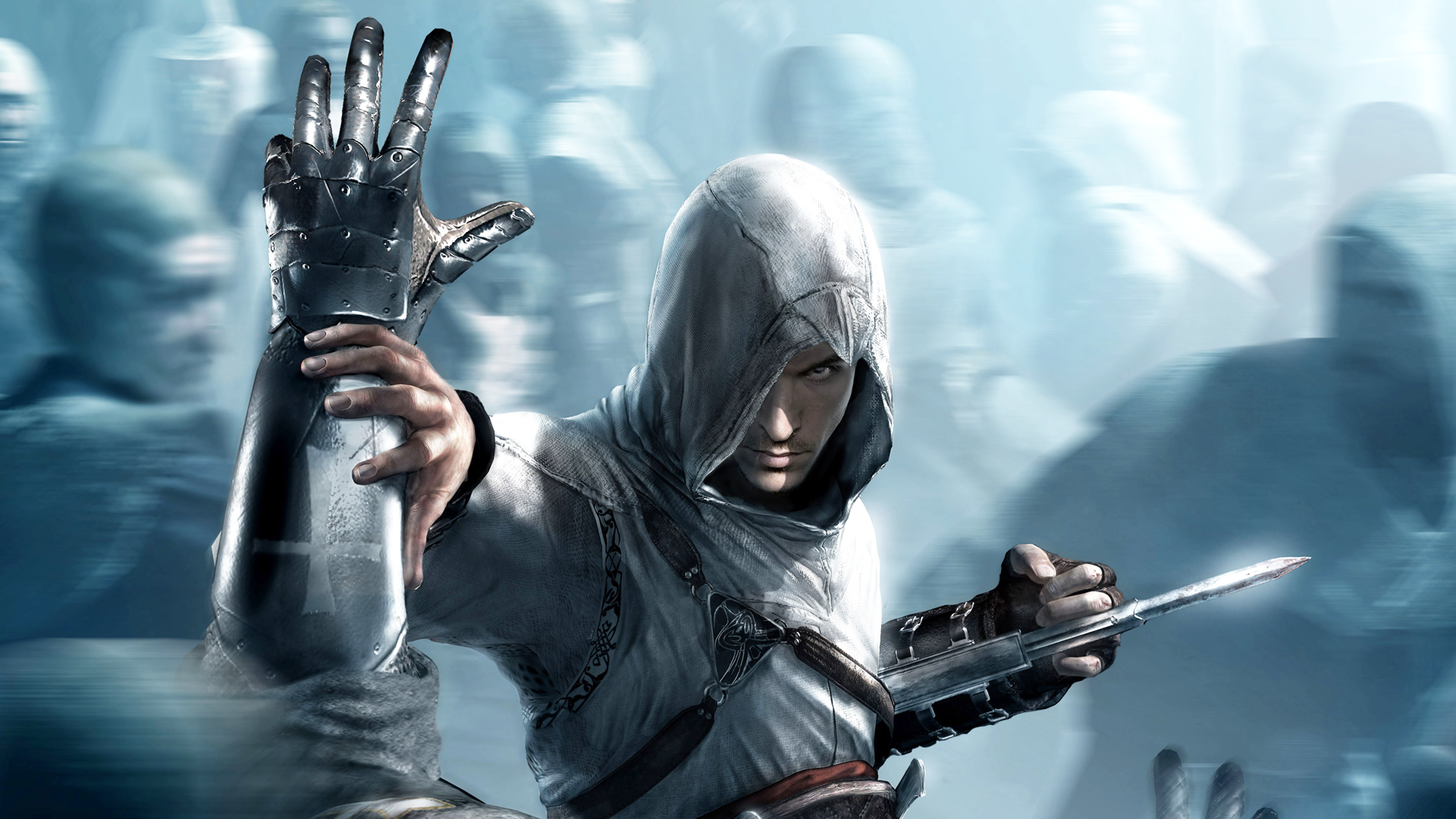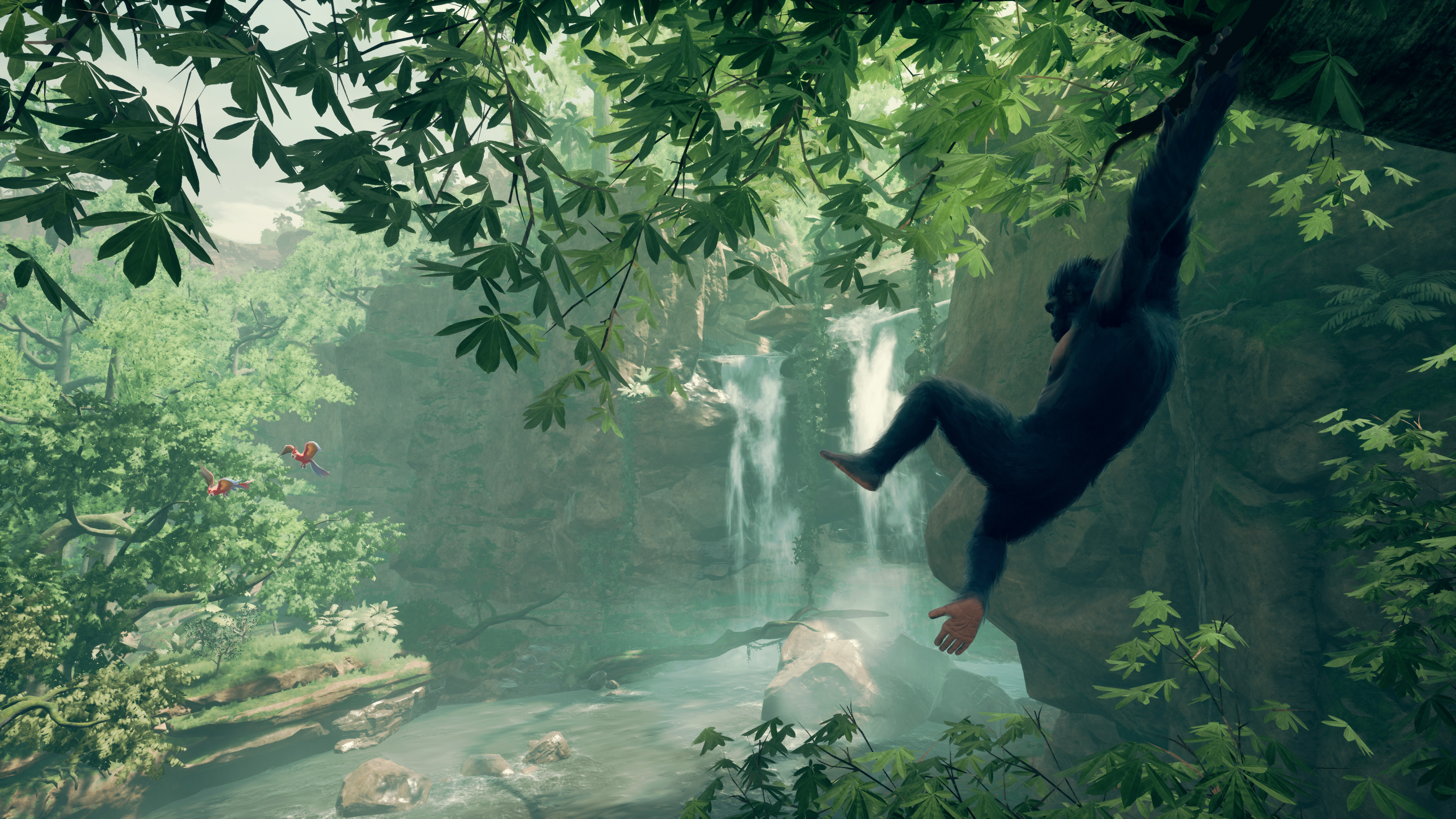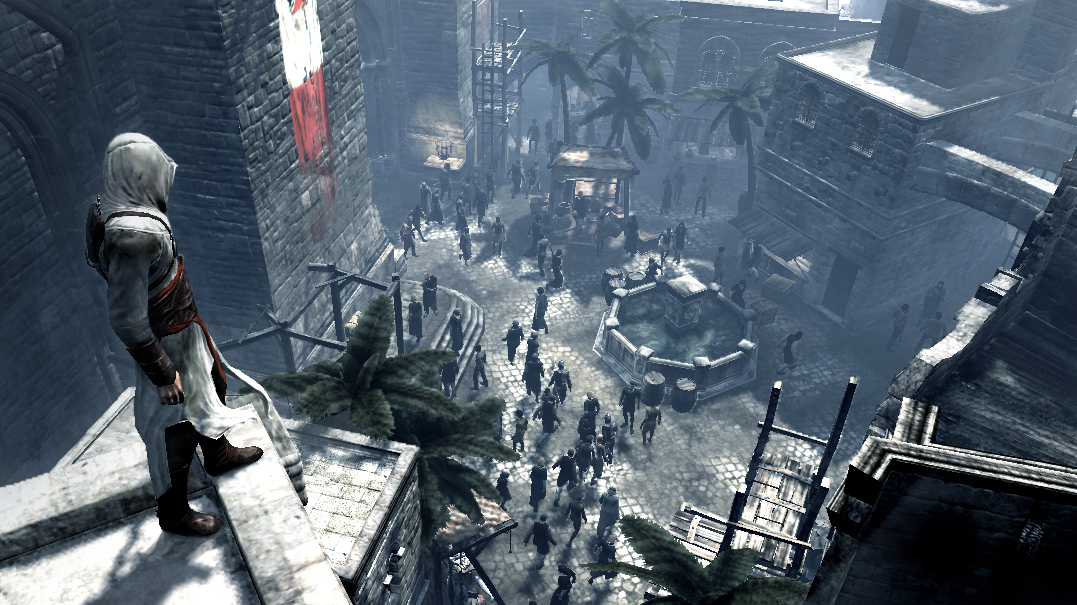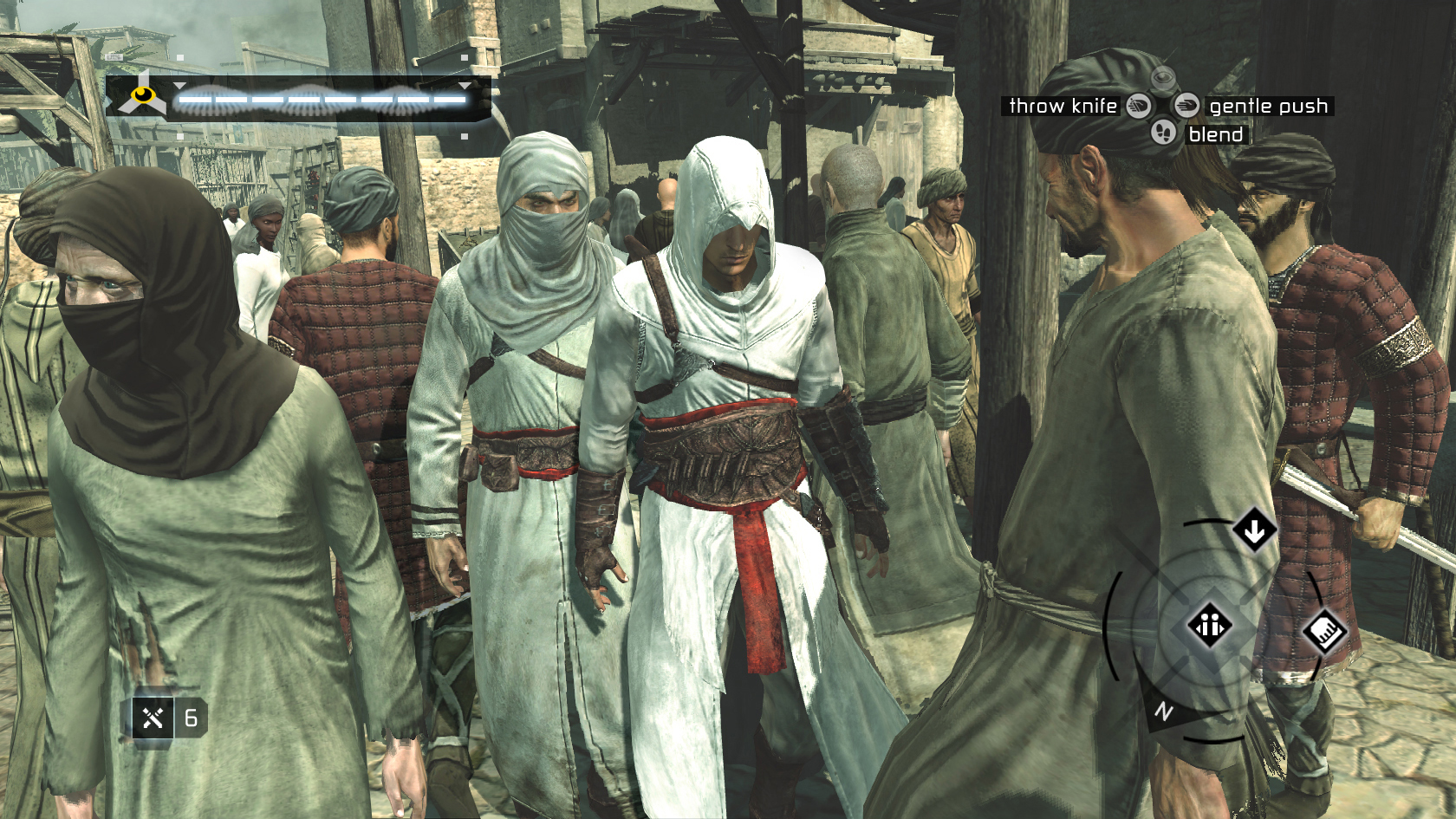Assassin's Creed's creator explains why big budget studios have turned their back on social stealth: 'It's money, man'
"Think it's easy to make Assassin's Creed? Oh boy. We didn't know what it was."

"You're asking a really precise question about a game that does not exist," says Patrice Désilets. He's sitting alone in the office of Panache Digital Games, the studio he set up after parting ways with Ubisoft for the second time, but you could believe a PR person was standing over his shoulder. He smiles. "It's an amazing political answer I gave you right there."
Thankfully, Désilets has never been particularly good at keeping his own secrets, and his excitement for 1666: Amsterdam soon bubbles over. This is the game he's been fighting to make for a decade, after all, his intended follow-up to Assassin's Creed II. Set during the height of the Dutch Republic, it would have mixed urban stealth and NPC manipulation with Dishonored-style animal possession.
The original game, however, was a casualty of THQ's bankruptcy. The development team was sold off to Désilets' former employer, Ubisoft, and perhaps unsurprisingly the two couldn't see eye to eye. For years afterwards, Désilets battled to win the right to work on 1666 independently - a fight he's previously claimed almost cost him his house, but which he ultimately won.
Ironically, the spoils weren't very substantial. "1666: Amsterdam back at THQ was still in the conception phase," he says. "When I got it back, I got assets, I got website domains. I got an idea."
Désilets plans to direct a new 1666 at Panache, but knows it will be necessarily different. Times have changed, and so has the makeup of his team. "There is a DNA in Panache that we may gain," he says, the language of genetics still coming easily to the man behind the Animus. "Panache actually believes in the intelligence of players, and uses their curiosity to drive the game forward. So how do we do a game with that in mind that is a lot more story-driven? How do we combine the two?"
Panache's last game, Ancestors, told no story beyond the one players wrote for themselves by engaging with its 10-million-year-old open world. But its tree-climbing mechanics, and particularly the way it monitored players' actions, will inform how the studio approaches 1666. "It gave us this toolbox that we can reuse," Désilets says. "We have at our disposal everything we've done with Ancestors that we can put in different time periods."

"I've said a lot," he adds, as if given a glare by that invisible PR. "Because then in four or five years [fans will say], 'Ah, you said that, and that's not exactly what it is now'. But you have to embrace the fact that a game changes until it ships, and even these days a bit after it ships, which is incredible. Back in the days of Assassin's Creed, you shipped and it was over. There was nothing you could do about it."
Keep up to date with the most important stories and the best deals, as picked by the PC Gamer team.
Ancestors, like that first Assassin's Creed game, has divided opinion - roughly between those frustrated by its unrealised ambition, and those seduced by its genuine novelty.
"In both cases, I'm really proud," Désilets says. "When you try something new, it's part of the deal with the universe. Some people will like it, some people won't. They think it's easy to make Assassin's Creed? Oh boy. We didn't know what an Assassin's Creed game was before we finished the first one."
Désilets enjoys making sequels, with their certainties and clear points for improvement - but acknowledges that he's wired to chase the wholly new, against industry wisdom. "I need to learn that I don't have to reinvent the wheel on everything," he says. "But it's because the way I work fundamentally is that I attack a subject matter. I don't care about making a game. I'm not making a videogame because I like videogames. I attack a subject matter, and out of it, there will be a game. And I need to respect the subject matter."

Ancestors is the way it is - alluring, hostile, under-tutorialised - because it's intended to reflect the fashion in which our predecessors survived and evolved, without a manual. "It's because I want people to be somewhere else," Désilets says. "Are you Altaïr? Are you the Prince of Persia?"
As director of Prince of Persia: The Sands of Time, Désilets told his team that he didn't want to see any traces of game design on-screen. "That was pretty new," he says. "Back then you would put arrows on everything, and the blocks you could interact with would be different colours." The palace that hosted the game was hit by an earthquake, in order to explain its treacherous architecture. "It's all about justifying the game rules and hiding them so that you're immersed," Désilets says. "When I was a teenager, I did a lot of improv. I ask the players to act the part. Fight to win an Oscar, more than to win the game."
This roleplay was never more tangible than when blending with the crowd in Assassin's Creed, presenting a safe, false image to your enemies. Why, I wonder, has triple-A moved away from social stealth since?

"Because it's tough," Désilets says. "It's hard to make you believe in it. It's tough to render a crowd and make sure that players get that they're hidden. Triple-A is a lot about precision, in the character models and the rendering of the crowd."
We all know what convincing social interaction looks like, Désilets suggests, and developers have a hard time recreating its appearance at the level of precision that players have come to expect. "But I still find it interesting," he says. "It was unique and different and not easy to make. But maybe that was abandoned for something more trendy. You said triple-A, and triple-A, it's money, man. It costs a lot to make, so you need to make sure a lot of people will appreciate it. That's why, I guess, people say, 'We'll just do the hack and slash, and NPCs will be there but they won't be the main part,' which is a shame. We had something."
Désilets pauses, discombobulated by the mental trip in his own personal Animus. "2007 now seems like history," he says. "It's a parallel universe these days."
Jeremy Peel is an award-nominated freelance journalist who has been writing and editing for PC Gamer over the past several years. His greatest success during that period was a pandemic article called "Every type of Fall Guy, classified", which kept the lights on at PCG for at least a week. He’s rested on his laurels ever since, indulging his love for ultra-deep, story-driven simulations by submitting monthly interviews with the designers behind Fallout, Dishonored and Deus Ex. He's also written columns on the likes of Jalopy, the ramshackle car game. You can find him on Patreon as The Peel Perspective.

